Program
Day 1
All times are in Central European Time (CET).
9:00-9:10 Opening Remarks
9:10-10:30 Morning Session: Downstream Tasks
Chair: Mariana Romanyshyn
| 9:10-9:25 | Improving Named Entity Recognition for Low-Resource Languages Using Large Language Models: A Ukrainian Case Study
Vladyslav Radchenko and Nazarii Drushchak |
| 9:25-9:45 | A Framework for Large-Scale Parallel Corpus Evaluation: Ensemble Quality Estimation Models Versus Human Assessment
Dmytro Chaplynskyi and Kyrylo Zakharov |
| 9:45-10:05 | Introducing OmniGEC: A Silver Multilingual Dataset for Grammatical Error Correction
Roman Kovalchuk, Mariana Romanyshyn and Petro Ivaniuk |
| 10:05-10:25 | Improving Sentiment Analysis for Ukrainian Social Media Code-Switching Data
Yurii Shynkarov, Veronika Solopova and Vera Schmitt |
10:30-11:00 Morning Coffee Break
11:00-12:00 Morning Session: Towards a Ukrainian LLM
Chair: Oleksii Ignatenko
| 11:00-11:20 | From English-Centric to Effective Bilingual: LLMs with Custom Tokenizers for Underrepresented Languages
Artur Kiulian, Anton Polishko, Mykola Khandoga, Yevhen Kostiuk, Guillermo Gabrielli, Łukasz Gągała, Fadi Zaraket, Qusai Abu Obaida, Hrishikesh Garud, Wendy Wing Yee Mak, Dmytro Chaplynskyi, Selma Belhadj Amor and Grigol Peradze |
| 10:20-10:40 | Benchmarking Multimodal Models for Ukrainian Language Understanding Across Academic and Cultural Domains
Yurii Paniv, Artur Kiulian, Dmytro Chaplynskyi, Mykola Khandoga, Anton Polishko, Tetiana Bas and Guillermo Gabrielli |
| 11:40-12:00 | On the Path to Make Ukrainian a High-Resource Language
Mykola Haltiuk and Aleksander Smywiński-Pohl |
12:00-13:00 Keynote: Sebastian Ruder
13:00-14:15 Lunch
14:15-15:30 Afternoon Session: Linguistics and NLP
Chair: Mariana Romanyshyn
| 14:15-14:30 | Developing a Universal Dependencies Treebank for Ukrainian Parliamentary Speech
Maria Shvedova, Arsenii Lukashevskyi and Andriy Rysin |
| 14:30-14:50 | Vuyko Mistral: Adapting LLMs for Low-Resource Dialectal Translation
Roman Kyslyi, Yuliia Maksymiuk and Ihor Pysmennyi |
| 14:50-15:10 | Context-Aware Lexical Stress Prediction and Phonemization for Ukrainian TTS Systems
Anastasiia Senyk, Mykhailo Lukianchuk, Valentyna Robeiko and Yurii Paniv |
| 15:10-15:30 | Precision vs. Perturbation: Robustness Analysis of Synonym Attacks in Ukrainian NLP
Volodymyr Mudryi and Oleksii Ignatenko |
15:30-16:00 Afternoon Coffee Break
16:00-17:00 Keynote: Illia Strelnykov
17:00-17:50 Afternoon Session: Responsible AI
Chair: Oleksii Ignatenko
| 17:00-17:15 | UAlign: LLM Alignment Benchmark for the Ukrainian Language
Andrian Kravchenko, Yurii Paniv and Nazarii Drushchak |
| 17:15-17:30 | GBEM-UA: Gender Bias Evaluation and Mitigation for Ukrainian Large Language Models
Mykhailo Buleshnyi, Maksym Buleshnyi, Marta Sumyk and Nazarii Drushchak |
| 17:30-17:50 | Gender Swapping as a Data Augmentation Technique: Developing Gender-Balanced Datasets for Ukrainian Language Processing
Olha Nahurna and Mariana Romanyshyn |
17:50-18:00 Closing Words
Day 2
9:00-9:10 Intro
9:10-10:40 Morning Session: Shared Task
Chair: Roman Kyslyi
| 9:00-9:15 | The UNLP 2025 Shared Task on Detecting Social Media Manipulation
Roman Kyslyi, Nataliia Romanyshyn and Volodymyr Sydorskyi |
| 9:15-9:30 | Detecting Manipulation in Ukrainian Telegram: A Transformer-Based Approach to Technique Classification and Span Identification
Md. Abdur Rahman and Md Ashiqur Rahman |
| 9:30-9:45 | Hidden Persuasion: Detecting Manipulative Narratives on Social Media During the 2022 Russian Invasion of Ukraine
Kateryna Akhynko, Oleksandr Kosovan and Mykola Trokhymovych |
| 9:45-10:00 | Comparing Methods for Multi-Label Classification of Manipulation Techniques in Ukrainian Telegram Content
Oleh Melnychuk |
| 10:00-10:15 | Framing the language: Fine-Tuning Gemma 3 for Manipulation Detection
Mykola Khandoga, Yevhen Kostiuk, Anton Polishko, Kostiantyn Kozlov, Yurii Filipchuk and Artur Kiulian |
| 10:15-10:30 | Transforming Causal LLM into MLM Encoder for Detecting Social Media Manipulation in Telegram
Anton Bazdyrev, Ivan Bashtovyi, Ivan Havlytskyi, Oleksandr Kharytonov and Artur Khodakovskyi |
10:30-11:00 Morning Coffee Break
11:00-13:00 Panel Discussion: Disinformation Detection from a Business Perspective
Panelists: Kateryna Burovova, Nataliia Romanyshyn, Yaroslav Peliushenko, Yuliia Dukach
Chair: Roman Kyslyi
Keynote Speakers
Illia Strelnykov, Data Scientist at YouScan, Ukraine
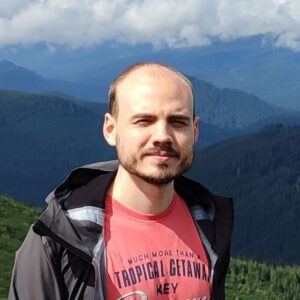
Topic: Leveraging User Feedback to Improve Your Models
While academic research provides a strong foundation for model development, the ultimate goal is to deploy these models in real-world applications, where they interact with actual users. This talk addresses the critical challenge of effectively leveraging user feedback to enhance model performance in practical scenarios. We’ll explore ways to incorporate the highly valuable — yet inherently noisy — user-provided data into model training and fine-tuning pipelines. First, we’ll cover methods for collecting user feedback and the challenges involved in processing it, including issues like bias and conflicting information. Then we will examine various solutions for tackling these challenges and how to use refined feedback for model improvement.
Sebastian Ruder, Research Scientist at Meta, Germany
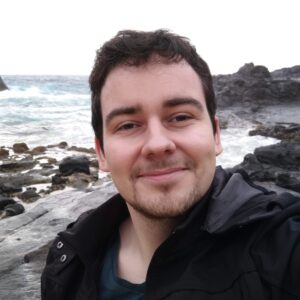
Topic: Multilingual Modeling and Evaluation in Llama 4 and Beyond
In this talk, I will cover some of the multilingual modeling methods and evaluations we used for Llama 4. Looking ahead, I will discuss the current challenges in cross-lingual research, with a focus on Ukrainian specifically.
Panelists
Kateryna Burovova, ML Engineer at LetsData
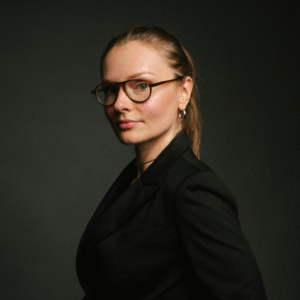
Kateryna specializes in AI-powered solutions for detecting and combating harmful information operations, leveraging NLP and computational social science to create threat detection pipelines that analyze content semantics, user behavior patterns, network dynamics, and other contextual signals.
Nataliia Romanyshyn, AI Specialist at Texty.org.ua
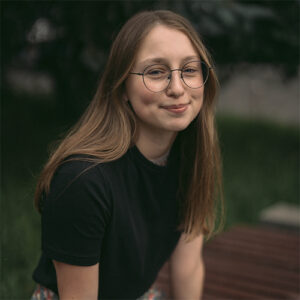
Nataliia focuses on the detection and analysis of Russian disinformation. Her expertise includes natural language processing, specifically topic modeling, named entity recognition, large language models, and multilingual NLP. She plays a key role in developing analytical frameworks that transform complex textual data into actionable insights aimed at uncovering disinformation mechanisms.
Yaroslav Peliushenko, Head of Analytics at Osavul
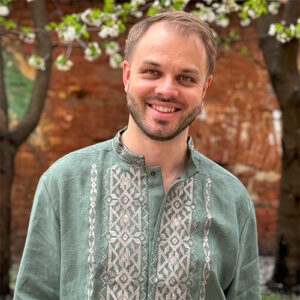
Yaroslav is the Head of Analysis at Osavul, a technology company developing AI-powered solutions for deep intelligence and countering information threats. At UNLP, he will share insights into how their team analyses and structures information, the frameworks they use, and the thinking behind their approach.
Yuliia Dukach, PhD, Data Journalist and Head of Disinformation Investigations at OpenMinds
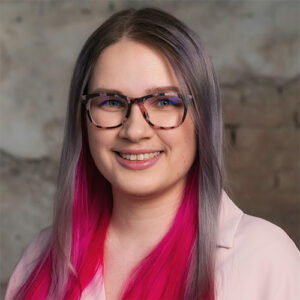
Yuliia is an expert in disinformation research with over five years of experience in investigative data journalism. Yuliia applies advanced skills in Python and machine learning to analyze computational propaganda and online misinformation.
Vasyl Starko, Ukrainian Catholic University, Ukraine

Andriy Rysin, Independent researcher, USA
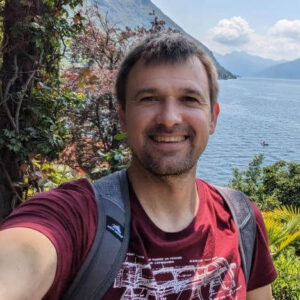
Topic: BRUK Team’s Resources for Ukrainian Corpus Creation
The talk will focus on the key resources and tools developed by the BRUK team for the automatic processing of Ukrainian texts, especially for building Ukrainian corpora. The resources include:
* BRUK (Ukrainian Brown Corpus, a projected one-million-word POS gold standard)
* VESUM (A Large Electronic Dictionary of Ukrainian, over 420,000 lemmas and counting, for POS tagging)
* USL (Ukrainian Semantic Lexicon for semantic tagging).
The tools come in the form of the NLP_UK suite for Ukrainian text tokenization, lemmatization, POS tagging, and cleaning. The application of NLP_UK to build multiple iterations of the GRAC corpus will be discussed.
